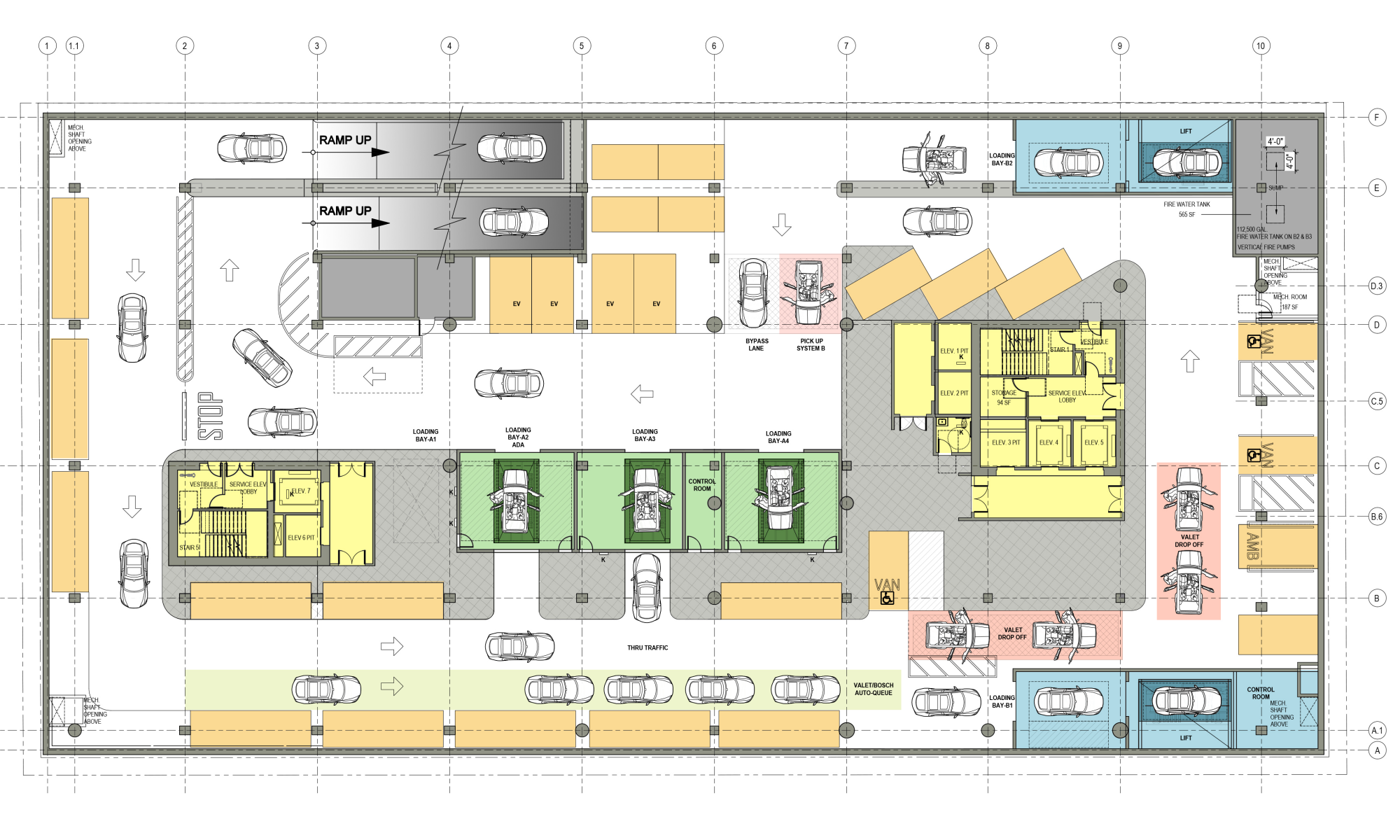Several factors affecting the performance of automated and mechanical parking systems need to be taken into consideration during the design process. These include:
Traffic studies: Prior to designing and choosing an automated or mechanical parking system, a traffic study should be completed. A traffic study will help determine peak traffic demand and will assist in deciding the number of hydraulic power units, valets, and entry and exit bays needed, how many exits will be required from the parking area, and much more.
Retrieval time: This is the length of time to retrieve a vehicle from a user request. Systems and attendants often use smartphone apps or texting to help customers know what the retrieval time will be.
Throughput: Throughput is the number of vehicles that can be stored or retrieved in an automated or mechanical parking system over a one-hour period.
User dwell time: This is defined as the amount of time it takes the driver to drop off their vehicle for storage and exit the drop-off area; or the amount of time the driver needs to access their vehicle and exit the parking garage. When determining retrieval time or throughput, the architect or designer must determine an appropriate user dwell time. First-time users of automated or mechanical parking systems will have a longer user dwell time than daily users. Residential users will typically have a longer user dwell time than office users. User dwell times vary from 45 seconds to 4 minutes. High-density parking system vendors will often provide system performance times without user dwell times.
In order to design an automated or mechanical parking system with peak performance, all of these factors must be taken into consideration during the design process.
###
This content is part of The American Institute of Architects (AIA) and U.S. Green Building Council (USGBC)-accredited course, Introduction to High-Density Parking Systems. Take the course online or register for/request one of our webinars to learn more and earn continuing education points.



 844-472-7575
844-472-7575
